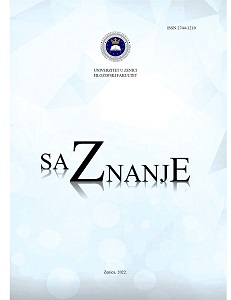MEDIJSKA PISMENOST, DEZINFORMACIJE I LAŽNE VIJESTI
MEDIA LITERACY, MISINFORMATION AND FAKE NEWS
Author(s): Enes PraskoSubject(s): Media studies, Politics and communication, Theory of Communication
Published by: Filozofski fakultet, Univerzitet u Zenici
Keywords: misinformation; media literacy; fake news;
Summary/Abstract: Spreading misinformation and false information is mainly possible through social networks and messaging application, which introduces the issue of the level of regulation and self-regulation of the media providing such services. The most serious issue with fake material is how to prevent in the shortest time possible their spreading and caution them that it is misinformation. Each of us can help. Prior to sharing a video or an image on a social network one has to verify the information. At the time of crisis, there is a tendency of one part of the population to trust more rumors than official information, which is a consequence of emotional reaction to fear. Such information is further spread and most people do that without bad intentions, simply because they are not well informed to recognize unverified information, which can cause serious problems for the whole society. When fake information and misinformation is reiterated and deepened, the real threat is that the true information, based on truth, would have a limited effect. Since those are in essence intermediary platforms and not creators of content, those media have up to now predominantly been subject only to mild regulation. However, in the context of increasing pressures on them, as well as risks that overregulation represents to freedom of expression, more steps are being taken within self-regulation.
Journal: saZnanje
- Issue Year: 3/2022
- Issue No: 3
- Page Range: 454-457
- Page Count: 4
- Language: Bosnian

